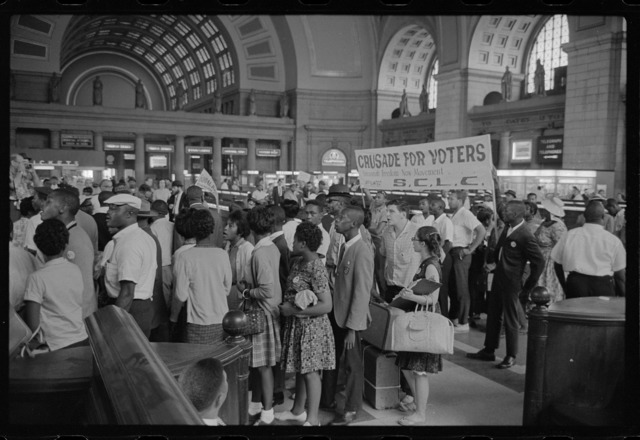
Sarah Davidson of North Little Rock, Arkansas, was in fourth grade when the teenagers who would be dubbed “The Little Rock Nine” courageously integrated Central High School.
“Many Black people were scared,” remembers Davidson of the 1957 campaign. “But they put me on the path I never stopped traveling. Even at 9-years-old, I didn’t feel less than.”
I felt we spent a lot of time talking but not enough taking action.
SARAH DAVIDSON
Davidson attributes her activism to a homelife that included mandatory reading of Black newspapers from across the country. Jet and Ebony magazines were also basic staples. She would regularly join her aunt at NAACP meetings, combining her eagerness to learn with an impatience to move.
“I felt we spent a lot of time talking but not enough taking action,” says Davidson. At 14, she convinced the leadership to allow her to start a North Little Rock NAACP Youth Council.
By the time she was 15, she was boarding a bus for an 18-hour life-transforming journey to the 1963 March for Jobs and Freedom.
“It was my first time ‘up South’ and I had never seen so many Black people in my life,” recalls Davidson, who was among a small cadre of youth ranging in age from 12 to 16. Men donned suits and ties; women wore their Sunday best. “It was a hot day. But it was spiritual. We had to represent. It inspired me to be a social justice activist.”
It was a hot day. But it was spiritual. We had to represent. It inspired me to be a social justice activist.
SARAH DAVIDSON
Young Sarah was led by the guiding light of Daisy Bates — NAACP leader, newspaper publisher, and one of the architects of the Little Rock Nine school campaign.
“Mrs. Daisy Bates was my kind of person. She was bold and fearless,” Davidson said. She marveled at Bates’ demand during a court proceeding that an interrogating attorney quit using her first name and address her as “Mrs. Bates.”
“I think Mrs. Bates and her husband, L.C. Bates, saw something in me. I couldn’t let her down.” During Davidson’s senior year in high school, Bates submitted her name to the Eleanor Roosevelt Scholarship Fund.
Honored with selection, Davidson was the recipient of a four-year full-ride scholarship to Howard University.
Today she resides in suburban Maryland, just outside of Washington, D.C., where she has worked for decades as a business development specialist, and in education, early childhood development, and public policy.


